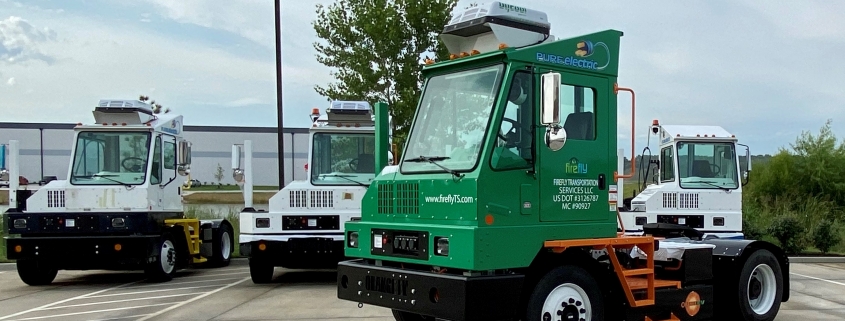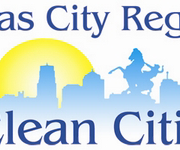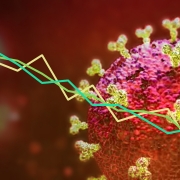All-Electric Terminal Trucks Make Great Business Sense
written by Kansas City Regional Clean Cities Coalition director David Albrecht
Metropolitan Energy Center (MEC) announces the first placements of all-electric zero-emission Class-8 yard trucks into service under a new grant project. The project, “Electrifying Terminal Trucks in Unincentivized Markets,” is the result of partnerships from Kansas City to Chicago, whose goal is to electrify terminal trucks in our regional market. The first placements of four planned have taken place at funding recipient Firefly Transportation Services. Based in Glenview, IL, Firefly provides zero-emission transportation options to freight yard, port and cargo sites, along with training and site preparation for all-electric operations.
The vehicles funded under this grant are manufactured by Orange EV. Based in Riverside, MO, Orange EV designs and manufacturers all-electric yard trucks right here in the heartland. They are also the first American company to commercially build, deploy and service 100% electric Class-8 electric vehicles. Before this year, Orange EV had yet to deploy one of their vehicles in the Kansas City area. Jason Dake, Vice President of Legal and Regulatory Affairs at Orange EV stated, “Not selling one of our trucks in our own backyard was a thorn in our side for a while,” he continued, “Seeing additional trucks deployed in the metro area through the project is a great feeling and most importantly, they are helping our community and improving the air quality for Kansas Citians.”
Additional funding recipients with all-electric truck placements planned in the near future are the Johnson County Wastewater Department in Leawood, KS and Hirschbach Motor Lines, a private long-haul carrier with emphasis on refrigerated and other specialized services. Hirschbach will deploy their truck at a client site in Wyandotte County, KS. Both Evergy and the Unified Government of Wyandotte County, Kansas City, Kansas Board of Public Utilities will provide technical assistance, as needed, on electrical service and electric rate guidance.
Orange EV will also take possession of a demonstration truck to provide potential customers across the U.S. up to a 2- to 4-month trial period. During the period, they can use the tractor free of charge, viscerally demonstrating air quality, noise-reduction and cost-savings benefits in their unique work environments.
Yard trucks (also known as hostlers, terminal tractors, goats or mules) are designed to pull cargo containers and semi trailers in freight or intermodal yards, or at large manufacturing sites. The workload for these trucks is intense, pulling heavy loads almost continuously. The power required means that most yard trucks are diesel, which results in a great deal of diesel exhaust, one of the worst pollutants and a major source of poor air quality. Diesel exhaust is not only a health risk for workers on site, but it also threatens communities surrounding industrial zones, typically low-income neighborhoods. Even worse, low speed, high-power operations emit much more soot and other particulates than diesel operations at highway speeds. Systematically replacing diesel yard trucks with electric models could substantially boost air quality in and around America’s busiest freight hubs. At the same time, the cost savings both from eliminating diesel fuel and from operating a much more efficient electric powertrain is an attractive advantage.
However, the project is not only about improving air quality and saving money. Another key goal is to gather data on electric truck operations to validate broader deployments of battery-powered yard trucks. Telematics and data, supported by fleet interviews and operational evaluation, will be analyzed by another project partner and nearby neighbor, Missouri University of Science and Technology. Ultimately, MEC will create a deployment guide based on the real-world experiences of our project partners in Chicago and Kansas City so fleet operators across the country can make the move to cleaner, more efficient freight handling.
To learn more about this project or to request the demo truck for your work site, please contact Emily Wolfe.
This material is based upon work supported by the U.S. Department of Energy’s Office of Energy Efficiency and Renewable Energy (EERE) under the Award Number DE-EE0008887.

 Photo by: Anissa Parra-Grooms, Metropolitan Energy Center
Photo by: Anissa Parra-Grooms, Metropolitan Energy Center



